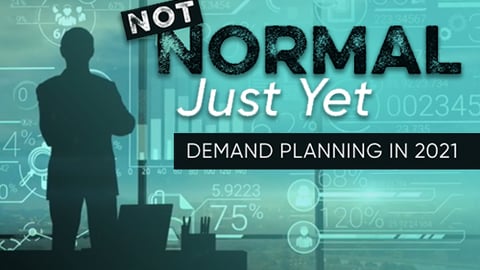3 Ways to Build a More Effective, Disruption-Proof Supply Chain
The past 18 months have exposed widespread supply chain vulnerabilities in nearly every industry sector. In particular, consumer packaged goods companies saw high demand spikes almost overnight, forcing them to immediately assess their own logistics processes and pivot appropriately.
During 2020 alone, nearly 70% of Americans reported changed shopping behavior. Shifts to extreme pantry loading and increased at-home consumption created new expectations for product availability — placing increased pressure on CPG suppliers to meet new retail compliance requirements or face considerable fines.
Adding even more pressure to the retail supply network, the recent six-day shutdown of The Suez Canal, one of the world’s most critical maritime shipping nodes, underscored additional vulnerabilities. For CPG suppliers, this emphasizes the need to evaluate their own logistics networks and invest in the processes necessary to create a resilient supply chain that won’t break when unexpected events occur — no matter the impact of disruption.
Whether it’s the pandemic or a blockage of the Suez Canal, CPG suppliers have the opportunity to get ahead of the next unanticipated disaster.
The following outlines key priorities to build a more effective, disruption-proof retail supply chain.
1. Partner with an Asset-Owned Retail Logistics Expert
Asset-owned 3PLs — that own their trucking fleets, operate their own warehouses and offer proprietary logistics technologies — have been recognized for elevating retail logistics performance. And for good reason.
These 3PL partners are positioned to accelerate supplier’s ability to consistently deliver high performance levels and meet changing expectations of escalated consumer demand. Ownership of assets allows them to optimize supply chain processes, pivot quickly and drive better overall decision-making at every turn. As companies evaluate their internal resources, it’s critical they consider partnering with a retail logistics expert to optimize their supply chain.
2. Invest in Real-Time Visibility and Data-Driven Management
Real-time, data-driven insights and increased visibility are essential for enhanced decision making and continuous supply chain improvement. For many consumer packaged goods businesses, the Covid-19 pandemic triggered an accelerated search for a 3PL partner with advanced technological capabilities for increased transparency and real-time insights.
With the help of a 3PL, companies eliminate capital technology investments, efficiently consolidate their resources and turn their focus on core business operations. Leveraging data-driven analytic technologies that integrate with warehouse and transportation management software, an innovative 3PL provides insights needed to accelerate efficiencies, enhance transparency and increase overall supply chain performance.
3. Increase Focus on Agility to Mitigate Risk
When suppliers invest in an end-to-end retail logistics solution, customers are provided with on-demand data insights that empower their ability to make better business decisions, right at their fingertips — driving agility and resiliency across the supply chain. Partnering with a retail logistics expert who can control your entire supply chain will enable the ability to identify and manage risk, while continuously improving performance efficiency.
While the last year and a half exposed wide-spread supply chain vulnerabilities, it has given business leaders an opportunity to elevate understanding of supply chain value — repositioning it as a strategic business imperative. As CPG suppliers continue to evaluate their supply chains, the effects of the “disasters of the moment” will continue to mount. It will be important to address inefficiencies before unexpected breaks result in retailer fines, damaged reputation and limited shelf space occur.
As global trade continues to recover amidst the Covid-19 pandemic, the Suez Canal blockage provides yet another wake-up call for U.S. suppliers to shift away from just-in-time inventory management to building agile, resilient supply chains that are business growth drivers.
With more than 30 years of supply chain experience, Greg Forbis serves as EVP, strategy and business development for RJW Logistics Group, where he is responsible for developing and maintaining strategic relationships with clients and partners.



